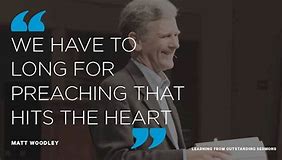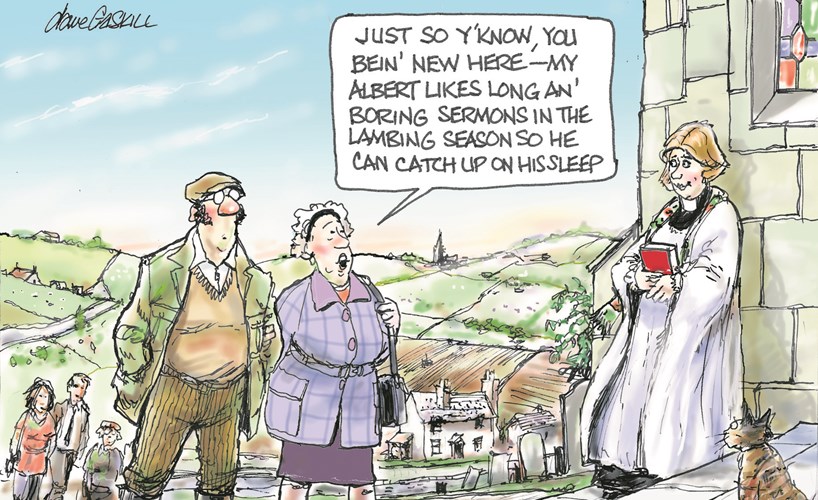Preaching is Better Than Teaching
Preaching Is Better than Teaching
In the last post, I began this series of reflections on the question, What Kind of Preacher Are You? We recognized that there is not necessarily a “right” kind of preacher. Of course, I’m referring to style, not content. When it comes to content, there is a “right” kind of preacher, one who builds his/her messages on the Word. But is one style of doing that better than another? In this post I’m going to argue that preaching is better than teaching as the style of presenting the word of God powerfully.
 So, last time we looked at the distinction between the “Teaching” preacher and the “Preaching” preacher. I hope you had some time to think about the Homiletical Grid that I introduced last time. Remember that the teaching pastor tends to rely a great deal on the exegetical study of the passage, and any application is tagged on. The point of the teaching pastor’s preaching is to make sure people understand the Word. Historical studies are part of that.
So, last time we looked at the distinction between the “Teaching” preacher and the “Preaching” preacher. I hope you had some time to think about the Homiletical Grid that I introduced last time. Remember that the teaching pastor tends to rely a great deal on the exegetical study of the passage, and any application is tagged on. The point of the teaching pastor’s preaching is to make sure people understand the Word. Historical studies are part of that.
The Preaching pastor, on the other hands, studies the scriptures faithfully, but works in light of the needs of his/her people. Application is part and parcel of the message.
Which Kind Is More Effective?
When we ask, What kind of preacher are you on this homiletical grid, you should know that there is a closely related question. “Which kind of preacher is more effective?” Studies that have been done show that the listeners tend to appreciate the preaching pastor more than the teaching pastor. Let that sink in for a moment.
Recently, I was consulting with a colleague who mentors younger pastors. We talked about how he could get this idea into the head of a young man whom he was coaching. This young pastor had learned all the fine words and ideas to use when he was in seminary, and his joy was to put all of those things into his messages. Unfortunately, the church was declining rapidly, and the ones remaining were not particularly happy. Preaching was one of the things people were critical about. They wanted to hear what God wanted them to do, and  he was missing the target.
he was missing the target.
Rick Warren has a blog called Pastors.com. In a 2015 posting he listed these reasons why some preachers remain teachers, short on the application of the Word:
Why aren’t more sermons built on application?

- We assume that people will make the necessary connection. We say, “They’ll get it. I’ll just teach it, interpret it for them. They’ll make the application in their own lives.” But they won’t.
- We leave it to the Holy Spirit. We say, “I teach the Word, and I leave the application to the Holy Spirit.” Not good enough. You are the Holy Spirit’s tool. He will speak through you, but you must make the application.
- Personal application is convicting and it makes people feel uncomfortable.
- We haven’t applied it in our own lives.
- It takes more time and effort and preparation. We spend so much time interpreting the text that we run out of time, and then application gets the short end of the stick in our preparation.
- We’re afraid of being simplistic. We don’t want to be life-oriented preachers because we think it’s the doctrinal preachers who are deep and loved and respected and honored and venerated. The life-application preachers are considered shallow and wimpy and cheap and sold-out.
- We don’t apply the Scripture because we’ve never been taught how to do it. There are lots of books on how to interpret the Bible, but almost no books on application.
- We haven’t realized the importance of application. Application is not something that you tack on to the end of the message. It is the message if you’re preaching to change lives and to make people like Christ.
What kind of preacher are you? If the point of our preaching is to have changed lives, then consider becoming more of a preacher and less of a teacher.




